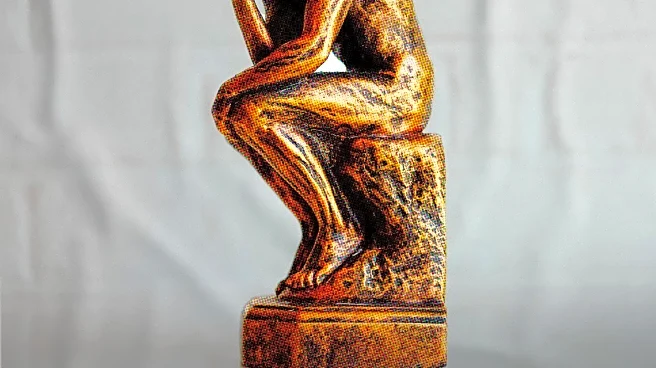What's Happening?
The Labour government in the UK is facing increasing pressure from both the Conservative and Liberal Democrat parties to release evidence related to a collapsed espionage case involving allegations of
spying for China. The Crown Prosecution Service (CPS) has indicated it would not oppose the publication of the evidence, which includes witness statements from Deputy National Security Adviser Matthew Collins. The case against Christopher Cash and Christopher Berry, charged under the Official Secrets Act, was unexpectedly dropped last month due to the government's inability to provide necessary evidence. Both individuals deny the allegations. The controversy centers around whether China was considered a national security threat during the time of the alleged offenses, which occurred between December 2021 and February 2023.
Why It's Important?
The demand for transparency in the collapsed China spy case highlights significant concerns about national security and the government's relationship with China. The situation has sparked debate over the government's handling of sensitive information and its approach to international relations, particularly with China. Critics argue that the government's reluctance to release evidence may suggest a prioritization of diplomatic relations over national security. This controversy could impact public trust in the government's ability to protect national interests and manage foreign policy effectively. The case also underscores the complexities of prosecuting espionage under the Official Secrets Act, which involves high stakes for national security and international diplomacy.
What's Next?
The Labour government may face further scrutiny during upcoming parliamentary sessions, including Prime Minister's Question time, where the issue is expected to be addressed. Conservative leader Kemi Badenoch has already called for answers from the Prime Minister, accusing the government of being too lenient towards China. The possibility of reopening the case remains uncertain, as legal principles such as 'double jeopardy' protect individuals from being prosecuted twice for the same offense. The government must decide whether to release the evidence, which could either alleviate or exacerbate public and political tensions.
Beyond the Headlines
The case raises broader questions about the balance between national security and diplomatic relations. It also highlights the challenges of maintaining transparency in government operations while safeguarding sensitive information. The legal and ethical implications of espionage cases, particularly those involving foreign powers, are complex and can influence public perception of government integrity and accountability.










